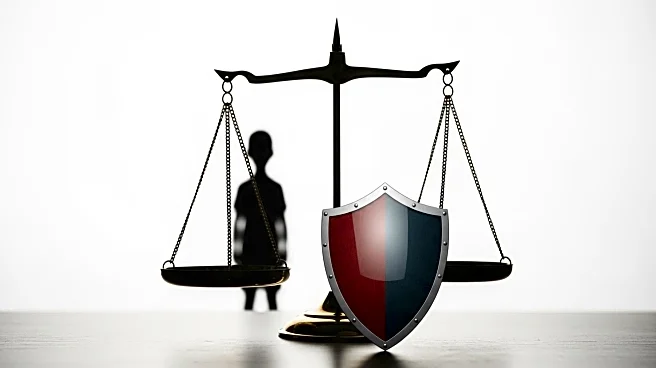What's Happening?
A federal judge in Washington has issued a restraining order against the Trump administration's plan to deport nearly 700 unaccompanied Guatemalan children back to their home country. The decision came after immigrant advocates argued that the deportations would violate U.S. laws. The judge, Sparkle L. Sooknanan, emphasized that her ruling applies broadly to Guatemalan minors who arrived in the U.S. without their parents or guardians. The administration had planned to start deportations this weekend, but the judge's order mandates that the children remain in the care of the Office of Refugee Resettlement while legal proceedings continue. Government lawyers claimed the children were being reunited with their parents or guardians, a narrative disputed by the children's attorneys.
Why It's Important?
The judge's decision highlights ongoing legal and ethical debates surrounding U.S. immigration policies, particularly those affecting vulnerable groups such as unaccompanied minors. The ruling temporarily halts a significant deportation effort by the Trump administration, which could have profound implications for the affected children, many of whom have pending asylum claims or immigration relief cases. This development underscores the tension between federal immigration enforcement and legal protections for minors, potentially influencing future policy decisions and legal interpretations regarding the rights of immigrant children.
What's Next?
The legal battle over the deportation of unaccompanied Guatemalan children is expected to continue, with further hearings and potential appeals. Attorneys in other states, such as Arizona and Illinois, have filed similar emergency requests to block deportations, indicating that the issue may expand beyond Washington. The Trump administration may seek to challenge the restraining order, while immigrant advocacy groups are likely to continue their efforts to protect the rights of these children. The outcome of this case could set a precedent for how similar cases are handled in the future.
Beyond the Headlines
This case raises broader questions about the ethical responsibilities of the U.S. government in handling unaccompanied minors and the potential risks they face if deported. The legal arguments presented by the children's advocates highlight concerns about due process and the potential for abuse or persecution upon return to their home country. The situation also reflects the complexities of immigration law and the balance between enforcement and humanitarian considerations.









